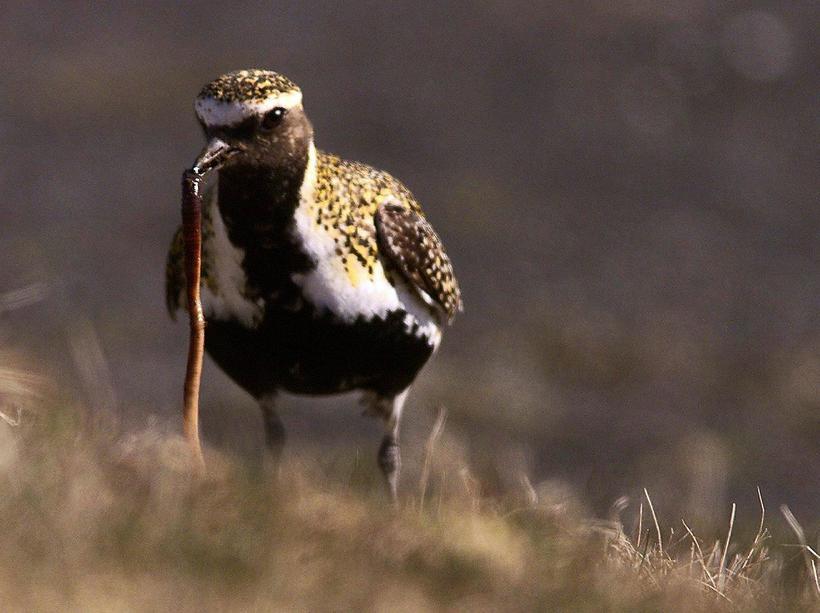One Third of World’s Golden Plovers Nests in Iceland
About a third of the world’s population of golden plover (Pluvialis apricaria altifrons) nests in Iceland. For whimbrel (Numenius phaeopus islandicus), that ratio is 27, for redshank (Tringa tetanus robusta) it is 12, and for dunlin (Calidris alpina schinzii) it is 10 percent.
A study titled “Icelandic meadow-breeding waders: status, threats and conservation challenges” was recently published by the international scientific magazine Wader Study, the website of the Southeast Iceland Nature Research Center (SINRC) reports. Its first author is Dr. Lilja Jóhannesdóttir. The study is a cooperative project between Univerisity of Iceland’s South Iceland Research Center, East Anglia University, UK, and University of Aveiro, Portugal.
The study provides a status report of the most common wading birds which nest in Icelandic pastures. It details their population size, population dynamics, the status of protection and major threats to the birds. Compared to other countries, Iceland is home to large populations of wading birds, which we have a duty to protect through international agreements. Therefore, it is essential for us to treat them with respect, the SINRC emphasizes.
The main threat facing these birds in Iceland is loss of habitat and climate change. As a result, it is necessary to adhere to international agreements when projects are planned, for the needs of birds to be taken into account and for us, Icelanders, to do everything in our power to fight climate change.
The abstract of the study states:
“Large areas of natural or semi-natural habitats are … still common and widespread in Iceland, and the current mosaic-like landscape created by areas of agricultural land within these habitats may help to provide the resources needed by the very large populations of waders that breed in the country. Wader species have all been protected from hunting and egg-collecting by law since the 20th century. However, lowland landscapes in Iceland are changing quite rapidly, as a result of agricultural expansion, afforestation, shrub encroachment and widespread construction of summer cottages, and all of these developments pose potential threats to these species. Predictions of the potential impact of current and future land use changes on these species [are] hampered by limited information on population dynamics, and no specific conservation efforts are currently aimed at meadow-breeding waders in Iceland.”








